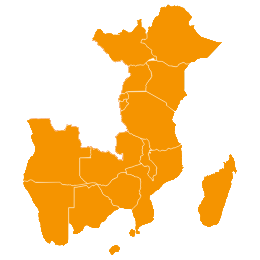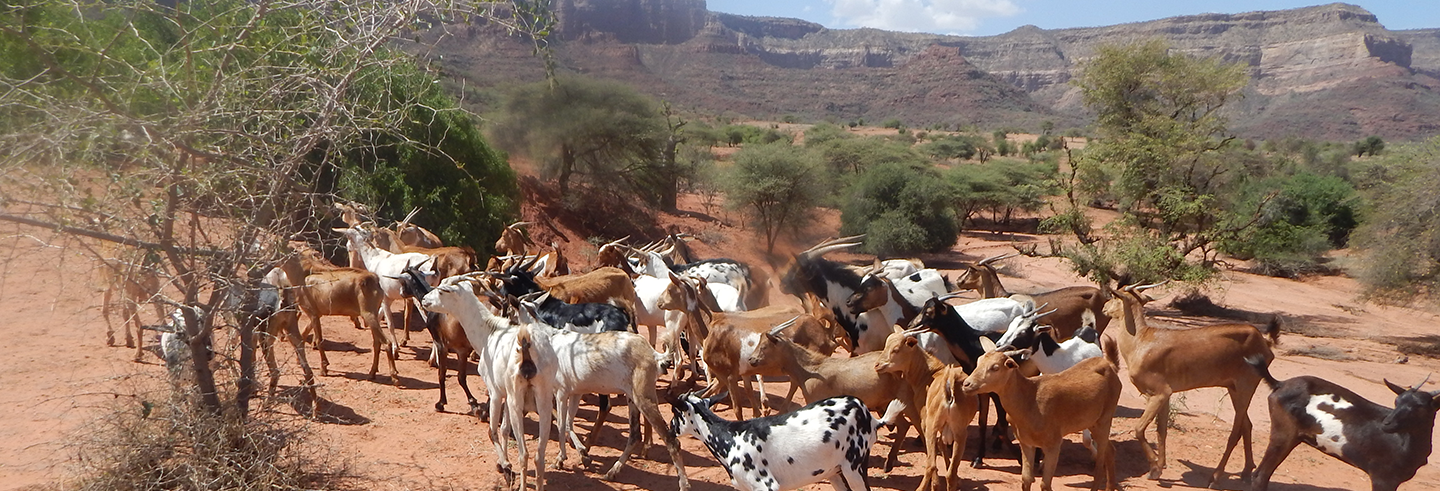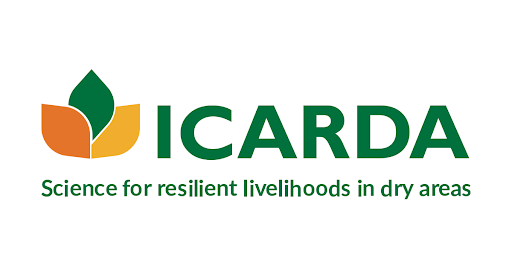Reproductive platform
“The certification process contributes to the transformation of sheep- and goat-breeding programs in Ethiopia, reduces the risk of unsuitable rams being used for breeding, enhances the quality of breeds and provides communities with new business models.”
BACKGROUND
Community-based breeding programs are the optimal solution to establish and implement breeding programs for small ruminants in low-input systems. However, scaling may be hampered by the lack of a delivery system. Building low-cost, low-input reproductive platforms around such breeding programs helps expand access to quality sires. The benefits can be assessed through the improvement and preservation of targeted indigenous breeds and the livelihoods of the participating communities.
WHAT’S INVOLVED
An improved breeding process : The solution offers interventions to enhance reproductive efficiency.
Network of labs: These labs are fully operated by Ethiopia’s regional research institutes and provide a wide range of reproductive techniques and biotechnologies.
Capacity Development activities : Reproductive platforms target technical staff, farmers and members of community-based breeding programs.
EXPLORE THIS SOLUTION
Reproductive platforms can offer services such as:
- Programmed natural mating plans
- Artificial insemination
- Services for pregnancy diagnosis to improve management
- Capacity development activities targeting technical staff, farmers and members of community

Countries involved
Ethiopia, Tanzania, Sudan
Project partners
Regional partners like South Agricultural Research Institute, Amhara Regional Agricultural Research Institute, Tigray Agricultural Research Institute and Oromia Agricultural Research Institute, Ethiopian Institute of Agricultural Research and the National Animal Genetic Improvement Institute, International Centre for Agricultural Research in the Dry Areas and the national partners, International Fund for Agricultural Development, World Bank
Project dates
2013-2021
Share this solution
Bookmark this solution
BookmarkShow Full Solution
Summary
The reproductive platform aims to establish low-cost, low-infrastructure reproductive laboratories that transform breeding programs in Ethiopia by enhancing the management of reproductive cycles and genetic improvements to popular sheep and goat breeds. It reduces the risk that potentially unsuitable rams would be used for breeding and provides communities with new business opportunities.
Challenge/Problem
Sheep and goat play an important role in the rural economy of Ethiopia, especially for smallholder farmers. However, the productivity of these animals remains low. There have been attempts to improve the productivity of native breeds through crossbreeding with imported livestock, but there have been few efforts to select quality indigenous breeds for improved productivity. Prior to the reproductive platform, there was no certification system for an authorized body to ensure quality control of the animals, a gap that could hinder local breeding programs. Because of the rising demand for small ruminant products, successfully implementing livestock transformation plans means not only enhancing reproductive management but also improving feeds, disease control, and marketing. The reproductive platform enables smallholders to achieve higher production, incomes and food security.
Solution
The reproductive platform solution is a set of technologies and services that help transform sheep- and goat-breeding programs in Ethiopia by enhancing access to improved rams. This reduces the risk that unsuitable rams would be used for breeding and improves the overall level of reproductive performance in the flocks participating in the various breeding programs.
CGIAR’s Research Program on Livestock helped establish and rapidly expand low-cost and low-infrastructure reproductive laboratories that complemented community-based breeding programs. These laboratories offered reproductive technologies such as artificial insemination and ultrasounds to diagnose pregnancy and cull unproductive females. They also provided the first certification in Ethiopia for sires with genetic merit, reproductive fitness and no prevalent infectious diseases.
The solution has expanded to a network of reproductive labs that help improve reproductive performance and efficiency. It has been implemented in Ethiopia and piloted in Tanzania (Kilimanjaro) and Sudan (North Kordofan). Pilot platforms were established to support the emerging community-based breeding programs for Sudan desert goat and sheep. Partners from Uganda have been exposed to the reproductive platform to set up a community-based breeding program for goats.
Regional partners like the South Agricultural Research Institute, Tigray Agricultural Research Institute and Oromia Agricultural Research Institute and the federal Ethiopian Institute of Agricultural Research were involved. Thanks to a co-investment between the International Center for Agricultural Research in the Dry Areas (ICARDA) and national partners, the National Animal Genetic Improvement Institute was able to expand the solution in Ethiopia. These partners ensured the sustainability of the solution by investing in upgraded laboratory infrastructure and supplies. Bilateral funding was also secured through the M-BoSs project, IFAD’s small ruminant meat value chain transformation (SmaRT) project in Ethiopia and Sudan’s contribution to the CGIAR. Recently, more funds were provided by the World Bank Livestock and Fisheries Sector Development Project in Ethiopia.
Results
- Broad adoption: According to a study based on the sheep and goat population in the community-based breeding program’s area in Ethiopia, approximately 6,000 households in total have directly benefited or are exposed to the services. They own 540,000 adult female sheep in nine districts and 370,000 adult female goats in three districts.
- Higher yields: The solution closed yield gaps by improving reproductive management practices.
- Maximize fertility and optimize litter size: The regionally established units use ultrasound-based technologies to identify pregnancy and hormone supplements to maximize fertility and optimize litter size. They also identify unproductive females that need to be culled and barren females that may require specific interventions.
- Genetic gains: Within the framework of Ethiopia’s community-based breeding programs, there has been widespread dissemination of genetic gains.
- Improved fecundity: In large field trials, conception rates for artificial insemination have reached 50-60 per cent. The flocks in the community-based breeding programs have also seen substantial improvements in overall fertility and litter size as a result of the improved management practices accompanying the implementation of the breeding programs.
Lessons Learned/Potential for replication
The knowledge needed to support reproductive platforms in low-input systems is composed of modules that can be easily disseminated through capacity development and technical fine-tuning. These modules include assessing genetic fitness and certifying sires’ certification; easy, accessible ways to synchronize fertility; artificial insemination techniques; and ultrasound-service delivery to diagnose pregnancy. Capacity development of local researchers and extension staff must continue to encourage government-level adoption of community-based breeding programs in order to genetically improve indigenous sheep and goat breeds. Identifying gaps in the current state of knowledge encourages new investments in research and the potential for further replication.
Next Steps
To meet requests to expand the reproductive platform to more goat sites in Ethiopia, the sire-certification program is being piloted in Bonga, Menz and Abergelle. Yearling rams will be selected and subjected to the certification process. ICARDA will provide technical guidelines and veterinarians from national research centres will collect data. Increasing the study of breeds will unlock information on the reproductive potential and performance of Ethiopian sheep in different agro-ecological areas. It is anticipated that the platform will be developed to support the expansion of a community-based breeding program for goats in Tanzania.
Solution Document Downloads

Solution Additional Resources
ICARDALast update: 25/05/2021


